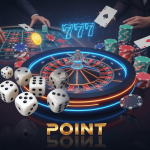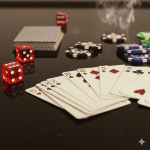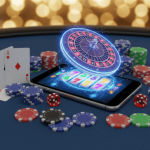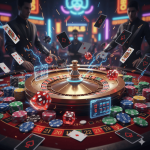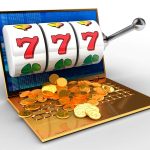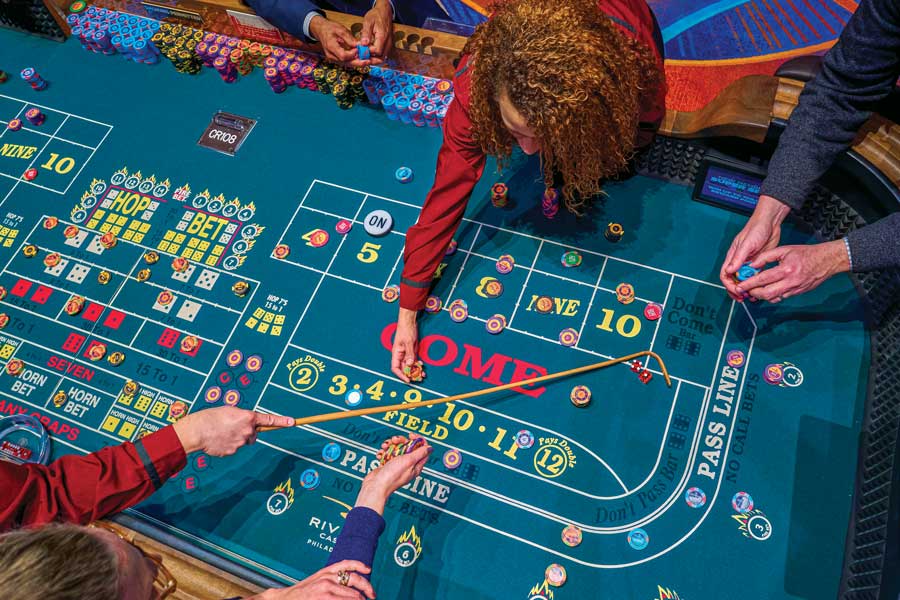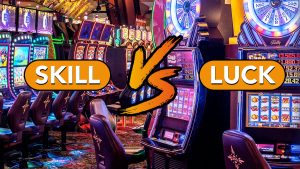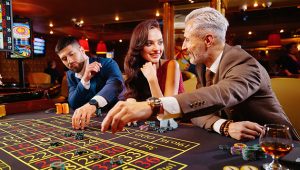Why Casinos Are More Than Just About Winning
When people imagine casinos, they think of champagne toasts, neon lights, jackpots, and stories of instant fortune. Yet beneath that glamorous exterior lies a less romantic but far more universal reality: loss. Players at platforms like 5gringo casino experience defeat far more often than victory, and this is not merely a byproduct of gambling – it is its central engine.
But here’s an unusual perspective: what if gambling isn’t just about chasing wins? What if it functions as a loss simulator, a condensed training ground where people rehearse failure over and over again? Just as athletes practice under pressure to prepare for competition, gamblers may unknowingly practice the art of defeat to prepare for the disappointments of real life.
This article explores gambling not as a financial risk or a form of entertainment alone, but as a psychological classroom of loss. We’ll look at why players return to experiences that end in failure, how loss in casinos mirrors life’s defeats, and why sometimes, losing may feel like a strange kind of preparation for the inevitable hardships we all face.
The Philosophy of Losing – A Hidden Teacher
At its core, gambling is structured loss. Mathematically, casinos always hold the advantage. The house edge ensures that in the long run, players give more than they take. But rather than being discouraging, this built-in pattern attracts millions of people worldwide.
Why? Because losing in a casino is not the same as losing in life.
- In life, a failed relationship can scar you for years.
- A missed job opportunity may derail your career path.
- A financial setback could burden you with debt.
In gambling, however, loss exists in a controlled environment. You lose a hand, a spin, a round, and then you move to the next. Unlike life, casinos offer an immediate reset button.
This creates a unique psychological condition: casinos ritualize loss, turning it into a repeatable cycle instead of a catastrophic event. In this sense, gambling can be seen as a teacher of endurance, offering players dozens of tiny failures in the span of a night.
Why Loss Feels More Manageable in Casinos
Predictability of Failure
Players understand from the moment they step into a casino – that the system is stacked against them. The odds are public knowledge, and every spin or shuffle is expected to result in losses more often than wins.
This predictability reduces the emotional impact. It’s easier to accept defeat when it’s part of the natural order of things rather than an unexpected betrayal.
Safe Experimentation
Casinos allow people to “practice failure” without permanent consequences. A lost spin doesn’t mean you lose your job, partner, or self-worth – it just means you lost a few credits. Unlike the unpredictability of life, the boundaries of defeat in a casino are controlled.
This makes gambling a laboratory of emotions where players can experiment with hope, disappointment, and resilience in a compressed cycle.
Emotional Training Through Gambling
The human brain responds to gambling with intense chemical reactions. Dopamine spikes during anticipation and drops sharply with defeat. Over time, players begin to develop psychological strategies to handle these swings.
Numbing the Emotional Sting
After dozens or hundreds of defeats, the nervous system adapts. Just as a pianist develops calluses, gamblers build emotional calluses against loss. The initial sting of defeat fades into a shrug or even a laugh.
Reframing Defeat
Players often reframe their losses not as “failures” but as payments for entertainment. Just as you wouldn’t expect to walk out of a movie theater richer, some gamblers reinterpret losses as the price of emotional engagement. This shift in perception transforms defeat from a wound into an investment.
Survival as a Victory
For some gamblers, endurance itself becomes the win. Walking away after a night of losses while still feeling intact – emotionally and financially – feels like a victory of resilience. The lesson is not “how to win” but “how to endure.”
Parallels Between Gambling Loss and Life Defeat
Casinos mirror life’s disappointments with uncanny accuracy.
- Financial Strain: Losing a hand resembles struggling with sudden financial hardship.
- Broken Promises: A slot’s near miss echoes life’s almost-successes.
- Career Frustration: A losing streak feels like endless rejections in professional life.
In this sense, every trip to the casino is a condensed version of the emotional rollercoaster of existence. By surviving these cycles, players train themselves for resilience outside the casino walls.
The Dark Side of Training for Loss
While it’s tempting to view casinos as healthy training grounds for resilience, the reality is more complex.
- Addiction to Losing: Some players grow so accustomed to defeat that it becomes their comfort zone. Victory feels alien, even threatening.
- Normalization of Pain: Repeated exposure to loss may teach players not resilience but resignation, encouraging them to accept defeat in areas of life where they could otherwise fight.
- Escapism: For many, the casino becomes less about practice and more about avoidance. Instead of learning from defeats, players escape into them.
Thus, gambling’s role as a loss simulator walks a delicate line between resilience training and self-destruction.
Why We Blur Losses but Remember Wins
Neuroscience explains why gamblers tend to forget losses while vividly remembering wins.
- Loss Blurring: The brain downplays negative events as a defense mechanism, preventing emotional overload.
- Win Amplification: Wins, however rare, are emotionally charged with dopamine, embedding themselves in memory.
This asymmetry is why gamblers often believe they are “lucky” despite overwhelming evidence to the contrary. It is also why casinos can function as hope machines – players keep coming back not for the probability of success, but for the memory of possibility.
Rituals of Losing – How Players Accept Defeat
Loss in casinos often comes packaged with rituals, giving it meaning and structure.
- The “Last Bet” Ritual: A symbolic attempt to close the night with control.
- Storytelling Losses: Turning defeats into jokes or anecdotes transforms personal pain into social bonding.
- Gestures of Closure: The sigh, the push of the chair, the final cigarette – all act as emotional punctuation marks to accept loss.
These rituals echo ancient cultural practices of mourning and renewal, showing that gambling is not just entertainment but also a ritualized confrontation with disappointment.
The Future: Casinos as Emotional Training Grounds
With digital gambling platforms, the experience of loss has become even more compressed and intensified. Players can experience dozens of cycles of hope and defeat within minutes, turning casinos into hyper-accelerated emotion labs.
In the future, it’s possible that casinos might even lean into this role explicitly – marketing themselves not just as entertainment but as resilience simulators, where players train to endure failure, disappointment, and uncertainty.
Conclusion: Losing as a Strange Kind of Gift
While society often stigmatizes gambling as reckless or destructive, its psychological dimension reveals a deeper truth. Casinos are not just about chasing jackpots – they are also about facing defeat in manageable doses.
Loss in casinos teaches us that life doesn’t always go our way, that resilience is more important than victory, and that sometimes, simply enduring is a win of its own.
In this light, gambling may be more than entertainment. It may be a rehearsal – a loss simulator preparing us for life’s inevitable defeats. The question is not whether we will lose, but how we will carry ourselves when we do.
